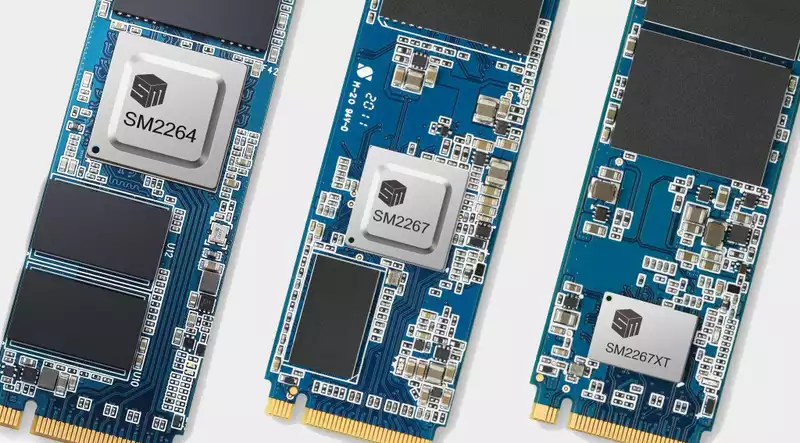The initial batch of SSDs using the PCI Express 4.0 bus were super fast and in some cases super expensive compared to the PCIe 3.0 bus. However, this may change now that Silicon Motion has announced three new PCIe 4.0 controllers.
This means more competition, which is always a good thing for consumers. The controller chip is essentially a processor that manages the NAND flash memory chips on the SSD and is directly related to the performance capabilities of the drive.
Silicon Motion has announced the launch of three PCIe 4.0 controllers, only one of which is a true performance chip. It is the SM2264 controller, which is intended for "performance and automotive" applications and will be included in select consumer SSD models.
The SM2264 will support sequential read speeds of up to 7,400MB/s and sequential write speeds of up to 6,800MB/s. It will compete with Phison's E18 controller, which supports up to 7,000 MB/sec read/write, and home-built controllers used by some companies such as Samsung.
Silicon Motion's other two controllers are less interesting from an enthusiast's perspective. These include the SM2267 for mainstream SSDs and the SM2267XT, a DRAM-less version for the value market. Both support read and write speeds of up to 3,900 MB/s and 3,500 MB/s, respectively. [Even though they are PCIe 4.0 models, the speeds they support are nearly identical to the faster PCIe 3.0 models. For example, Samsung's 970 Evo Plus delivers up to 3,500 MB/s sequential read and 3,300 MB/s sequential write, without requiring a motherboard that supports PCIe 4.0.
When applied to gaming, all these speedups are almost academic for the time being, but probably not for long. Microsoft and Sony have both promised much faster PCIe 4.0 SSD solutions for the Xbox Series X and PlayStation 5, respectively, with much faster load times and more expansive game worlds.
Simply put, SSDs in next-generation consoles are poised to change the way games are written. This can and should spill over into the PC arena. To that end, Microsoft recently released the DirectStorage API for Windows 10. This API is based on the same Velocity architecture that powers the Xbox Series X storage subsystem.
Thus, on the surface, Silicon Motion's announcement may seem trivial. However, looking at things more broadly, the possibility of cheaper PCIe 4.0 SSDs and a greater emphasis by developers on faster storage is an attractive proposition.


Comments